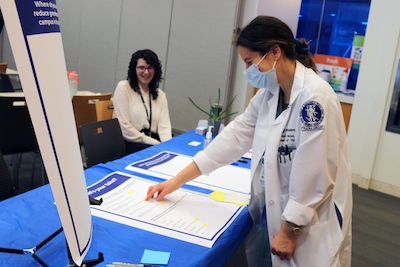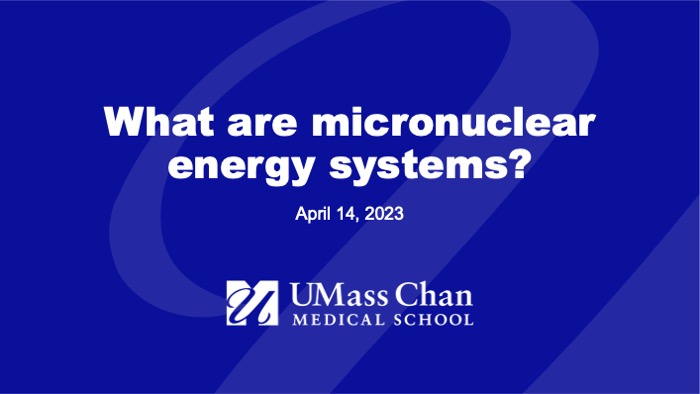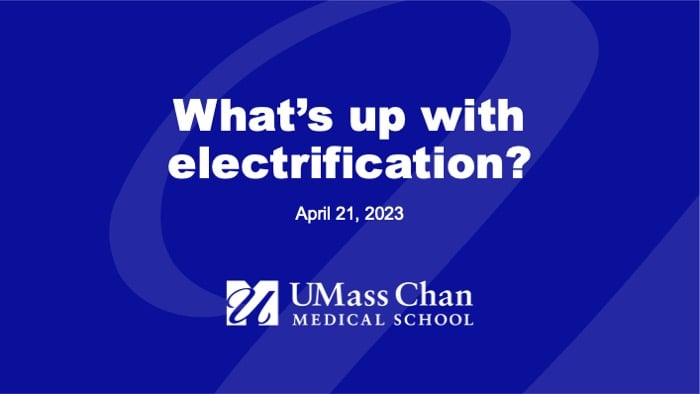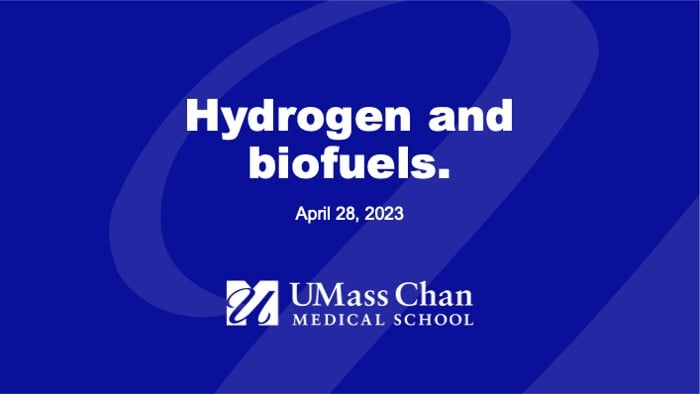Planning proceeds with public input

May 2023
A multidisciplinary team of engineers and sustainability professionals studying the carbon footprint of UMass Chan Medical School’s Worcester campus has now determined the hour-by-hour demand for heating, cooling and electricity for every building on campus for an entire year.
Developing the energy model for every building on campus was the first phase of the comprehensive decarbonization study launched last fall.
The second phase of the study will use the energy data from the first phase as a baseline to evaluate existing mechanical and technological systems and operations on campus and propose potential initiatives to improve efficiency and reduce reliance on fossil fuels. Reducing demand and finding alternative sources for energy will help the campus meet its short- and long-term greenhouse gas reduction goals.
“We have to address our greenhouse gas emissions, which is why we are moving forward with this project,” Suzanne Wood, associate director of facilities management for sustainability and campus services, said. “This study will give us a range of ideas and options to develop a balanced, phased and economically feasible approach that sustains our vital missions here.”
Gathering ideas from the campus community on sustainability and decarbonization is an important element of the study. GreenerU, the firm that helped UMass Chan develop its five-year climate action and sustainability plan, is facilitating the public input and campus outreach aspect of the study.
On Jan. 19, GreenerU organized an open house with engineers from ARUP and UMass Chan to brief the community and to hear suggestions from students, faculty and staff. Nearly 100 people attended the open house and contributed a range of suggestions, from using more compostable food containers in the cafeteria, to increasing electric vehicle charging ports on campus and building a solar array over the Pine Tree parking lot.
“I was pleasantly surprised with the turnout,” said Kortni Wroten, sustainability and energy manger at UMass Chan. “I wasn’t sure what to expect, but we were busy almost all day. It’s wonderful to see that so many people on campus are very concerned about climate change and what we can do to be more sustainable.”
A task force of interested students, faculty and staff is now in place and will be briefed monthly on the progress of the decarbonization study. The final element of the study will evaluate and present a range of scenarios to meet campus power demands in the future while reducing the use of fossil fuels. The study is expected to be completed this fall.
Planning to decarbonize is both an institutional priority and in compliance with the state mandate in Executive Order 594, signed by Gov. Charlie Baker on Earth Day in 2021, requiring state entities to reduce their greenhouse gas emissions 95 percent by 2050.





